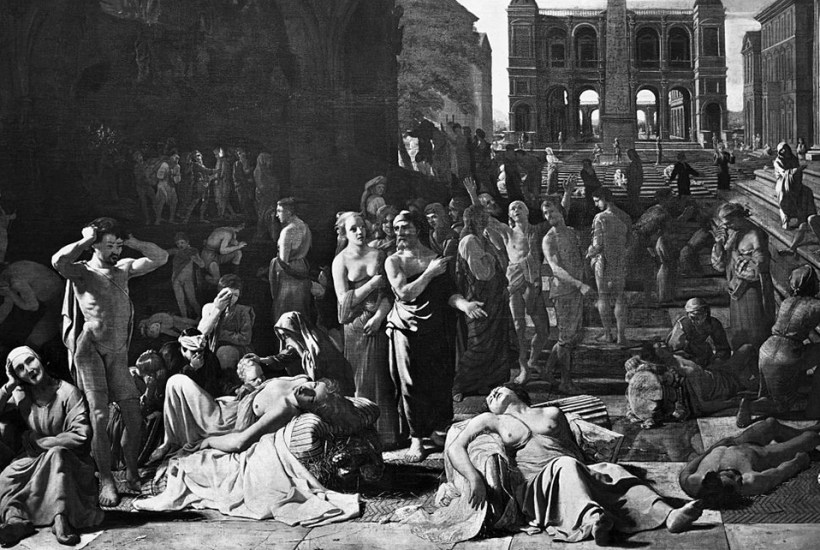The leaked WhatsApp messages about Covid tell us little of relevance to the handling of the disease (but much about personalities) because we all know what policies they resulted in and who was responsible for them. They have simply encouraged many journalists to proclaim (again) how they were completely right all along about lockdowns, and many readers to demand they are never repeated. Athenians might have disagreed.
In 430 bc, one year after going to war against Sparta, Athens was hit by a deadly plague, made all the more devastating by the fact that the whole population had been crammed within its defensive walls for fear of attack by the formidable Spartan army. It killed about a quarter of the population, perhaps as many as 100,000 people. The historian of that war, Thucydides, who caught the plague himself but survived, left an entirely deity-free medical account of it, of which any modern doctor would be proud:
‘The first internal symptoms were that the throat and tongue became bloody and the breath unnatural and malodorous. This was followed by sneezing and hoarseness, and in a short time the affliction descended to the chest, producing violent coughing. When it became established in the heart, it convulsed that and produced every kind of evacuation of bile known to the doctors, accompanied by great discomfort. Most victims then suffered from empty retching, which induced violent convulsions: they abated after this for some sufferers, but only much later for others. The exterior of the body was not particularly hot to the touch or yellow, but was reddish, livid, and burst in small blisters and sores… Most died about the seventh or ninth day…’.
Thucydides said that survivors could lose genitals, fingers, toes, their sight and their memory; and that the greatest cause of death was ‘cross-infection of those who cared for others, who died like sheep… especially those who from a sense of duty did not spare themselves in visiting friends’.
Be careful what you wish for.
Got something to add? Join the discussion and comment below.
Get 10 issues for just $10
Subscribe to The Spectator Australia today for the next 10 magazine issues, plus full online access, for just $10.
You might disagree with half of it, but you’ll enjoy reading all of it. Try your first month for free, then just $2 a week for the remainder of your first year.








Comments
Don't miss out
Join the conversation with other Spectator Australia readers. Subscribe to leave a comment.
SUBSCRIBEAlready a subscriber? Log in